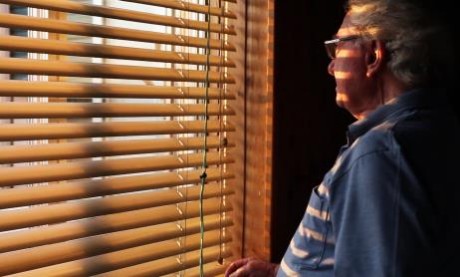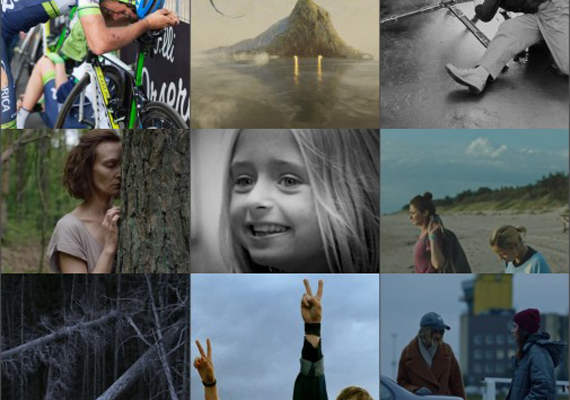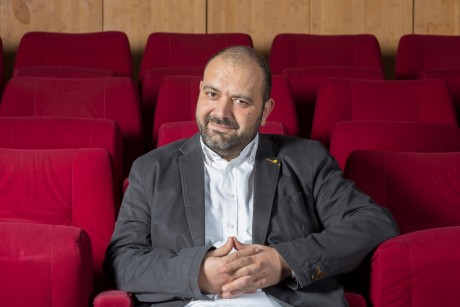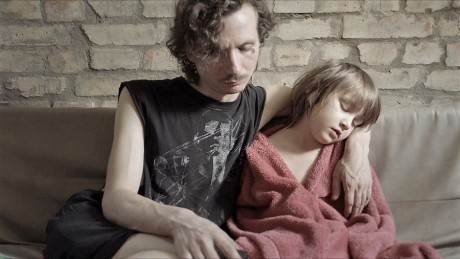


Ingmar Bergman 100 år /13
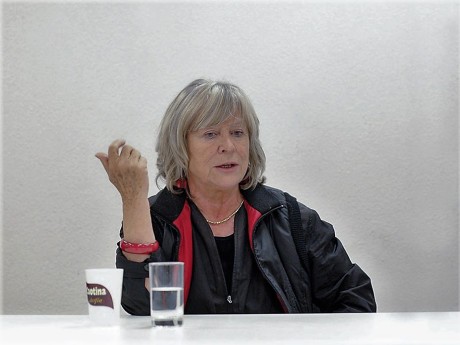
Det er altid særligt at læse virkelig lange romaner. Uanset om den strækkes ud over mange uger eller foregår i en hektisk rus, går læsningen fra at være en oplevelse til at blive en tilstand… (Martin Bastkjær i Informations bogtillæg, 12. oktober 2018)
MARGARETHE VON TROTTA: HISTORY AND CINEMA / GESCHICHTE IM FILM
Inde i min optagethed af von Trottas film om Bergman må jeg, igen i en af mine ekskurser, opsøge hendes øvrige film. Især inspireret af den lille scene, hvor hun i en liste over Ingmar Bergmans yndlingsfilm finder sin egen De tyske søstre og fascineret af en scene fra den film hvor de to piger lytter til en præsts prædiken fra den høje prædikestol og ned mod dem på bænken. Som Bergman fortæller at han i sin barndom lyttede til sin far i kirken i Stockholm.
Så blev jeg opmærksom på den her filmede forelæsning, som for mig er en levende filmografis tilblivelse, som jeg trods en forfærdende teknisk kvalitet finder er en gribende fortælling om en instruktørs tumlen med stoffet, baksen tålmodig med at forvandle tekst til cinematografi, lykkes med personligt at leve sig ind til en forståelse af og der dybt indefra skildre fremragende og modige kvinder, hun har lavet biografiske film om og nu i forlæsningerne fortæller om: Rosa Luxemburg (1986), Hanna Weinstein og Lena Fischer i Rosenstrasse (2003), Hildegard von Bingen (2009) og Hannah Arendt (2012).
Von Trotta fortæller under 2017-forelæsningen charmerende og let undskyldende, men tydeligt på engelsk, trods teknikkens vanskeligheder, men for tyskkyndige vil jeg foreslå 2013-versionen hvor hun taler sit eget elegante tysk.
Tyskland 2017, 77 min. og 2013, 83 min.
Offentliggjort den 11. feb. 2018:
https://www.youtube.com/watch?v=H97nI-A6bow
Margarethe von Trotta at The European Graduate School / EGS. Valletta, Malta. October 24th, 2017. Public open lecture for the students of the Division of Philosophy, Art & Critical Thought. (YouTube)
Offentliggjort den 12. dec. 2013:
https://www.youtube.com/watch?v=OXsx6j_67Ck
Vortrag der Mercator-Professorin 2013 der Universität Duisburg-Essen (UDE): Margarethe von Trotta am 10. Dezember 2013. (YouTube)
http://egs.edu/faculty/margarethe-von-trotta (detaljeret biografi, engelsk)
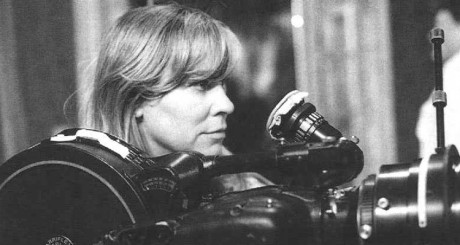
Margarethe von Trotta fører i forelæsningen kortfattet og vigtigt linjen tilbage til sin barndom og ungdom og til sine første film Katharina Blums tabte ære, 1975 og Christa Klages anden opvågnen, 1978. Fotografiet fra en optagelse må være fra den tid…

